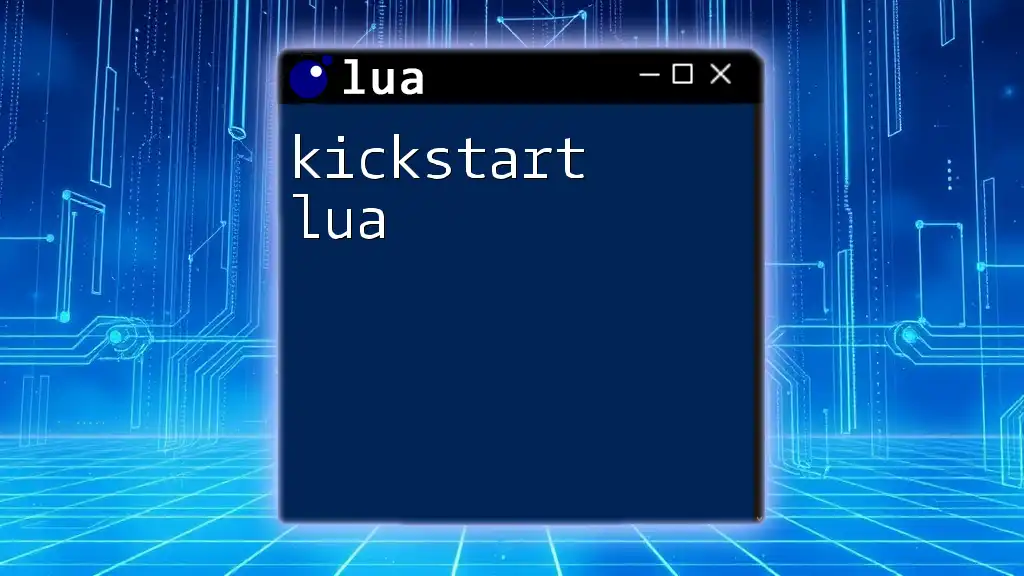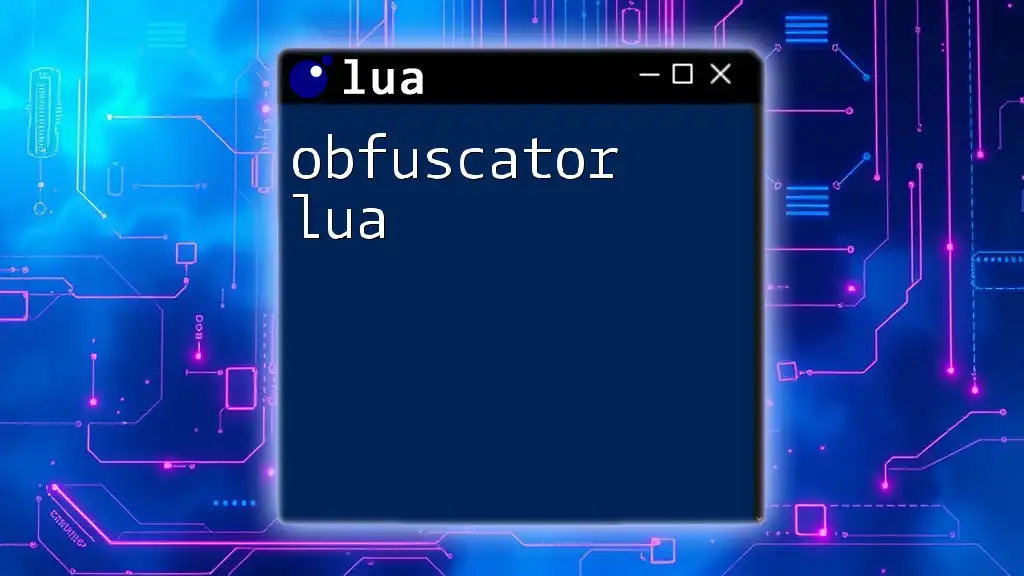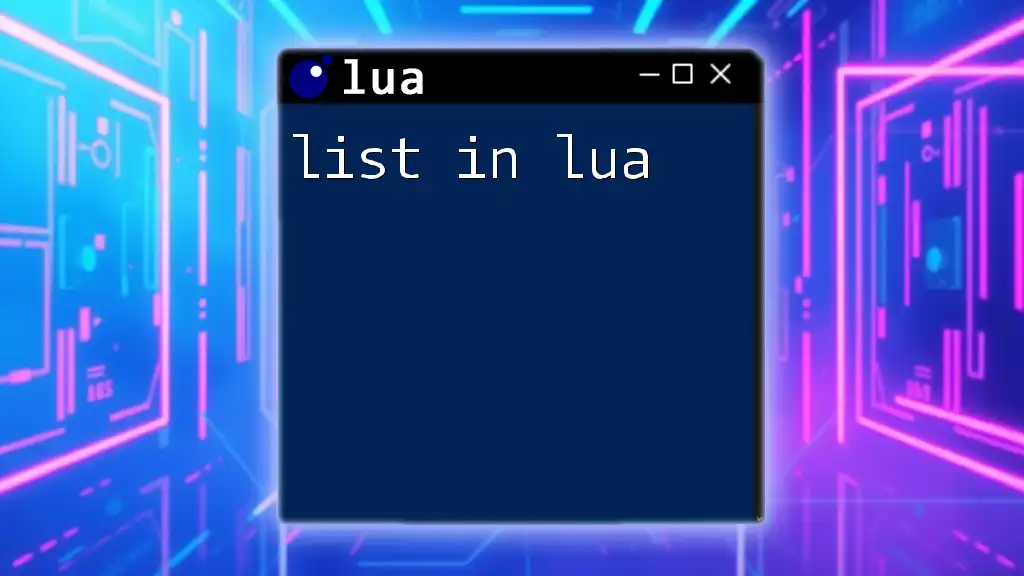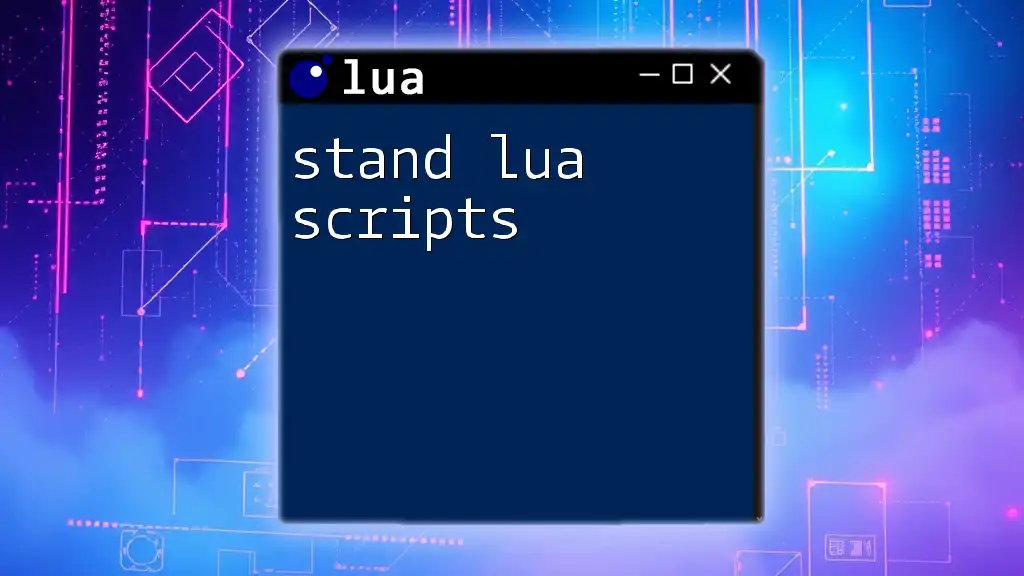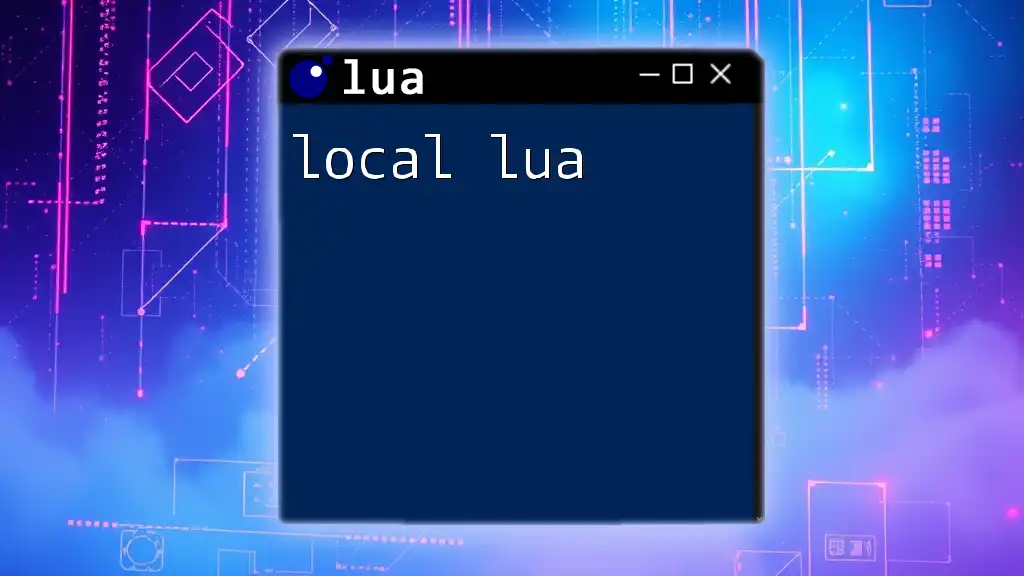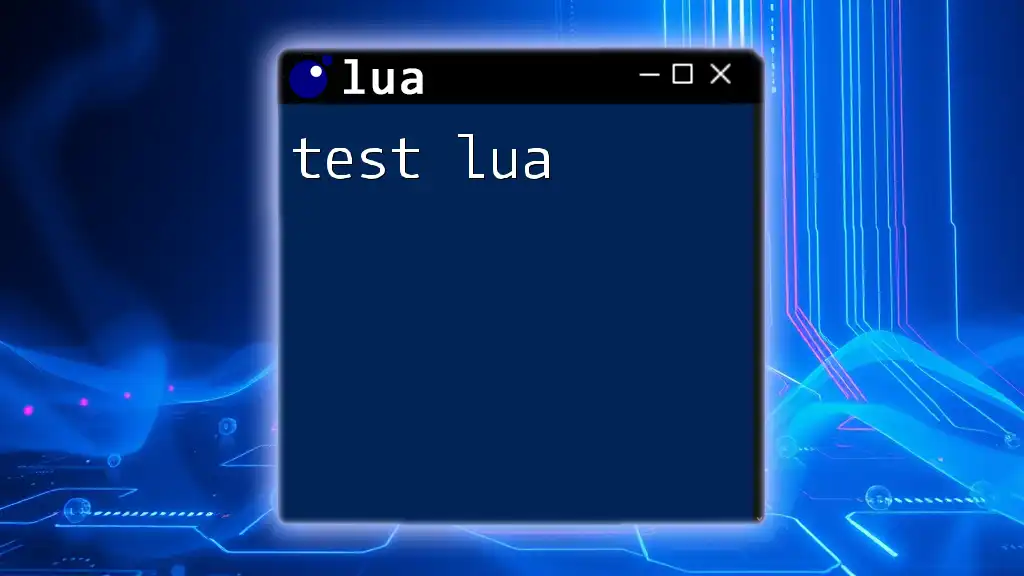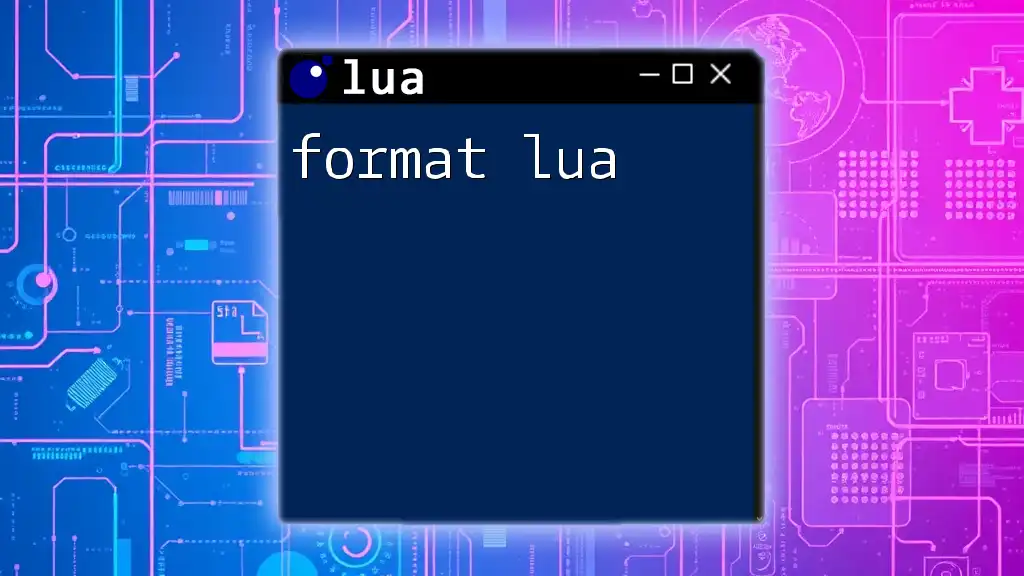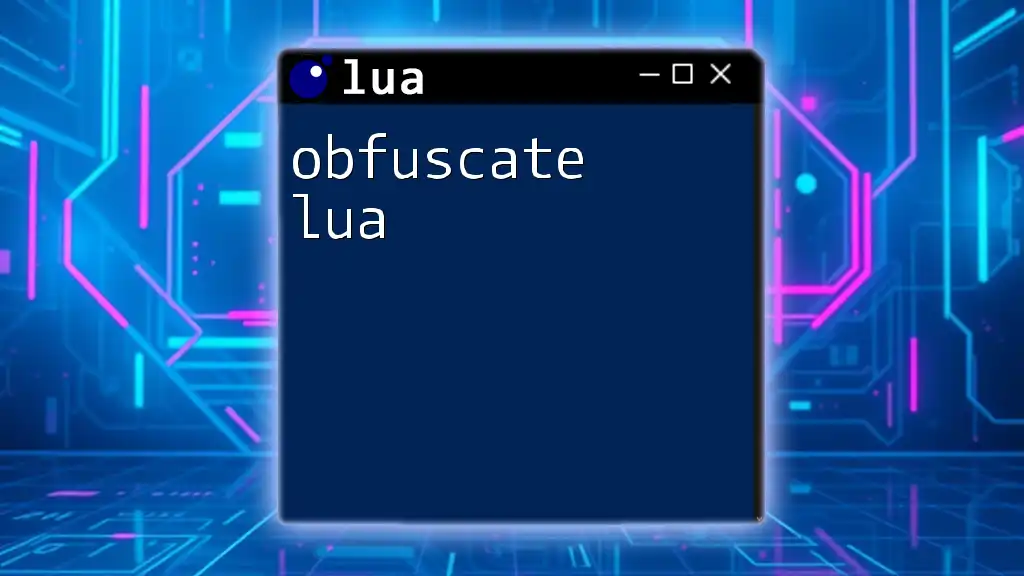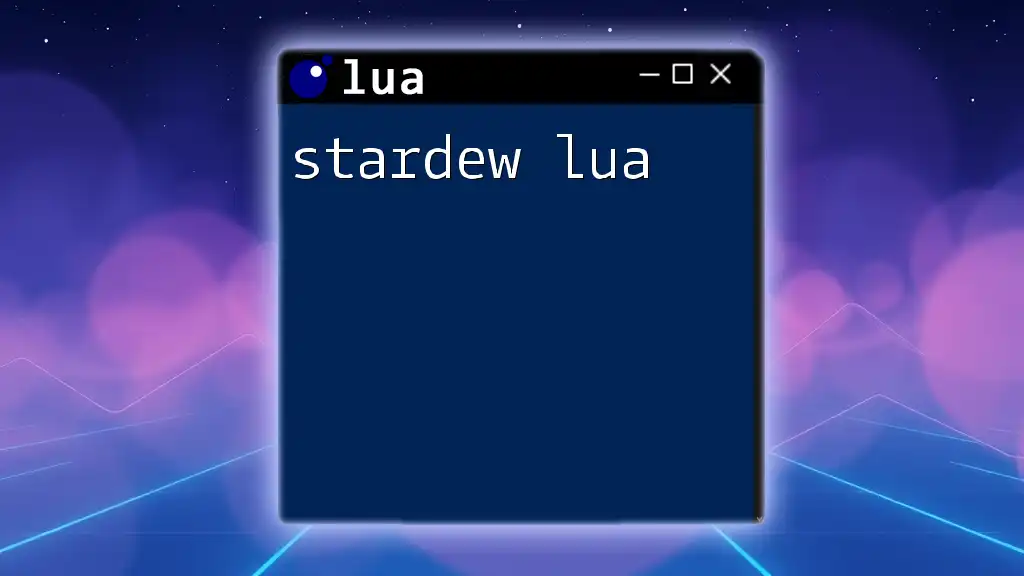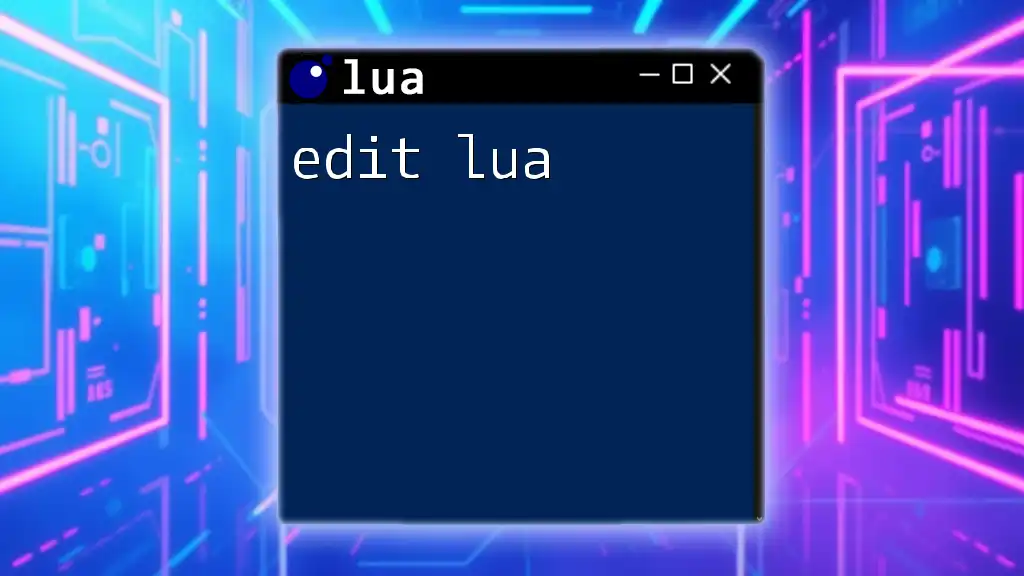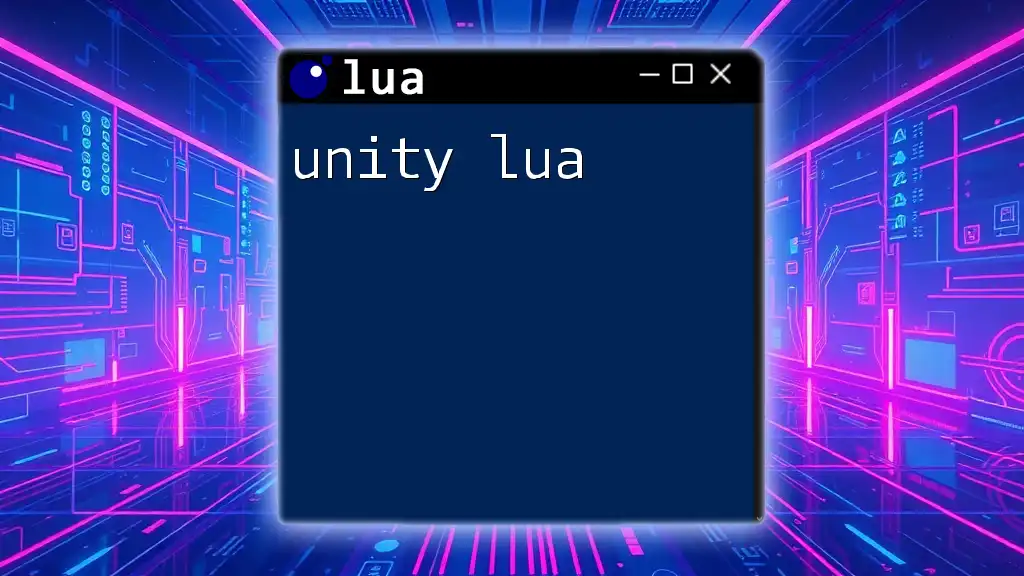"Kickstart Lua with a simple script that demonstrates how to print 'Hello, World!' to the console."
print("Hello, World!")
What is Lua?
Lua is a lightweight, embeddable scripting language designed for flexibility and performance. It shines in scenarios where efficiency and speed are essential, such as in game development, automation tasks, and data processing. Its simplicity and effectiveness have made it a favored choice among programmers, especially within the gaming industry, where it is often used for scripting gameplay and modding.
History and Evolution
Lua originated in Brazil during the early 1990s, developed by a team at the Pontifical Catholic University of Rio de Janeiro. It was designed to be an embedded scripting language that could extend applications in a lightweight manner. Over the years, Lua has gone through various updates and improvements, enhancing its capabilities, performance, and ease of use.
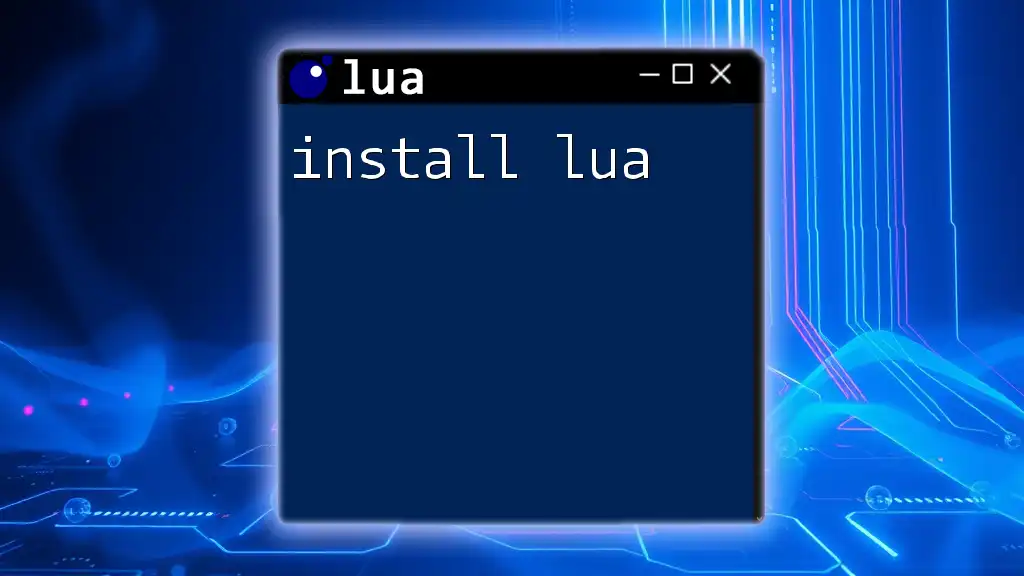
Setting Up Your Lua Environment
Installing Lua
To kickstart your journey with Lua, the first step is to install it on your system. Here’s how you can do that depending on your operating system:
-
Windows: Download the LuaBinaries from the official Lua website. Extract the files to a location of your choice and add the path to the executable (`lua.exe`) to your system PATH.
-
macOS: Use Homebrew by executing the following command in your terminal:
brew install lua -
Linux: Most distributions allow you to install Lua through their package manager. For example, on Ubuntu, you can run:
sudo apt-get install lua5.3
Choosing an IDE or Text Editor
Selecting the right development environment can enhance your productivity. Consider these options for working with Lua:
- ZeroBrane Studio: A lightweight IDE specifically for Lua with debugging features.
- VS Code: With Lua extensions available, it's a versatile choice for many developers.
- Notepad++ or Sublime Text: For those who prefer simple text editing, both support Lua syntax highlighting.
Running Your First Lua Script
Once Lua is installed, it’s time to write your first script. Open your text editor, enter the following code:
print("Hello, Lua World!")
Save the file as `hello.lua`, and then run it from the command line:
lua hello.lua
This command will output: Hello, Lua World! You've just executed your first Lua script.
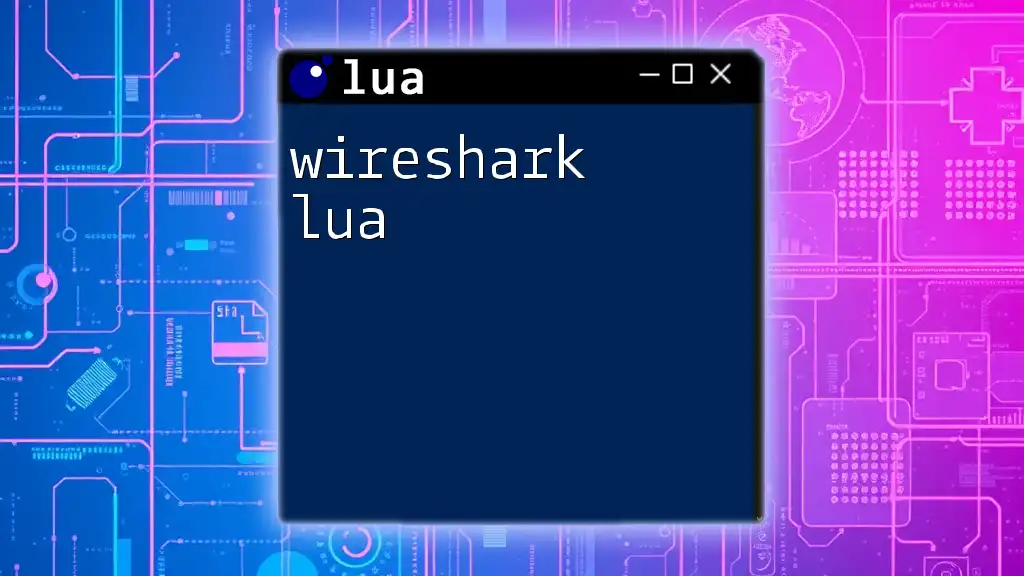
Understanding Lua Syntax and Basics
Lua Variables and Data Types
In Lua, variables are dynamically typed, meaning you don't declare a variable's type explicitly. There are several data types you can use:
- String: A sequence of characters.
- Number: Numeric values (integer or float).
- Boolean: True or false values.
- Table: The primary data structure in Lua for arrays and dictionaries.
- Function: A piece of code that can be called with arguments.
Here’s how to declare some basic variables:
local greeting = "Hello"
local number = 42
local isHappy = true
Control Structures
Control structures allow you to direct the flow of your Lua programs.
Conditional Statements
You can make decisions in your code using `if`, `elseif`, and `else` constructs. Here's an example:
if number > 40 then
print("Number is greater than 40")
else
print("Number is not greater than 40")
end
This snippet checks the value of `number` and prints the appropriate message.
Loops
Loops help repeat a block of code multiple times. Lua supports various types of loops, including `for`, `while`, and `repeat until`.
Here's a simple example of a `for` loop that prints numbers from 1 to 5:
for i = 1, 5 do
print(i)
end
This loop iterates through the values and outputs each number in the range.
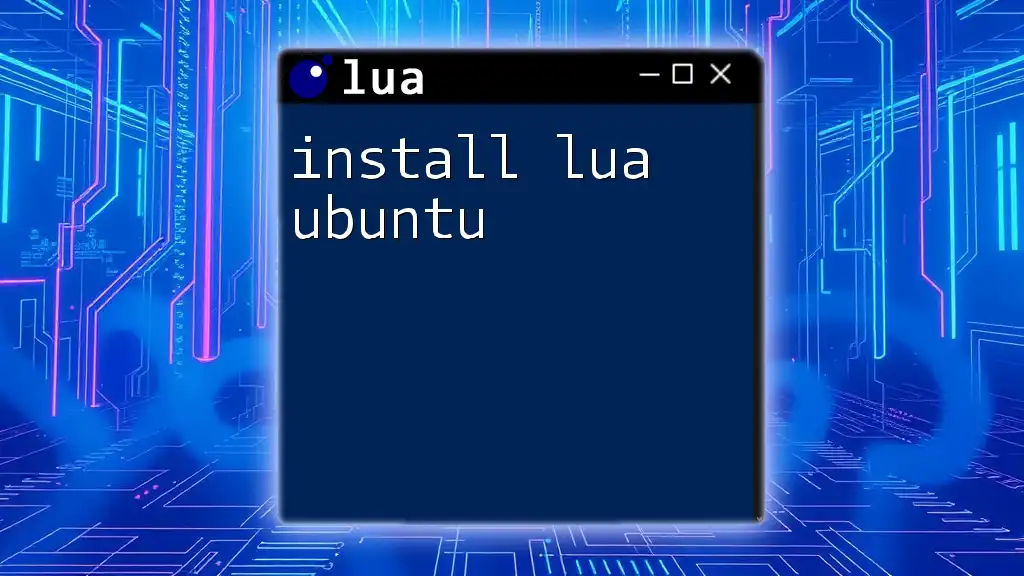
Functions and Tables
Defining Functions
Functions in Lua are defined using the `function` keyword. They can take arguments and return values, allowing for reusable code blocks. Here’s a simple function to greet a user:
function greet(name)
return "Hello, " .. name
end
print(greet("Alice"))
The output will be: Hello, Alice.
Understanding Tables
Tables are crucial in Lua, serving as the primary data structure that can contain various data types. They can be thought of as arrays or dictionaries.
To create a simple array and a dictionary, you can use the following code:
local fruits = {"apple", "banana", "cherry"}
local fruitColors = {apple = "red", banana = "yellow", cherry = "red"}
print(fruits[1]) -- Outputs: apple
print(fruitColors["banana"]) -- Outputs: yellow
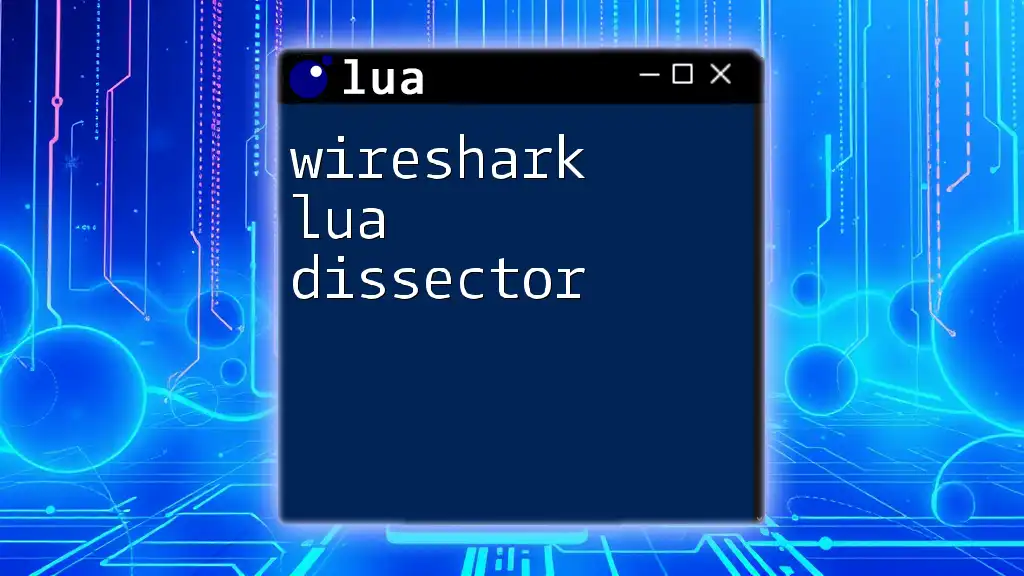
Advanced Lua Concepts
Metatables and Metamethods
Lua allows you to create complex data structures through metatables, which allow you to define the behavior of tables in unique scenarios. This capability is particularly useful when you want to extend the functionality of basic data types.
For instance, you can create a metatable that overrides the addition operator:
local mt = {
__add = function(a, b)
return a.value + b.value
end
}
local a = setmetatable({value = 10}, mt)
local b = setmetatable({value = 20}, mt)
local sum = a + b
print(sum) -- Outputs: 30
In this example, adding two custom objects will return their values by utilizing defined behavior in the metatable.
Coroutines
Coroutines provide a way to implement cooperative multitasking in Lua. They allow functions to yield and resume execution, which can be particularly useful for managing states in games or handling asynchronous events.
Here's an example of using coroutines:
co = coroutine.create(function()
for i = 1, 5 do
coroutine.yield(i)
end
end)
for i = 1, 5 do
print(coroutine.resume(co)) -- Outputs each number successively
end
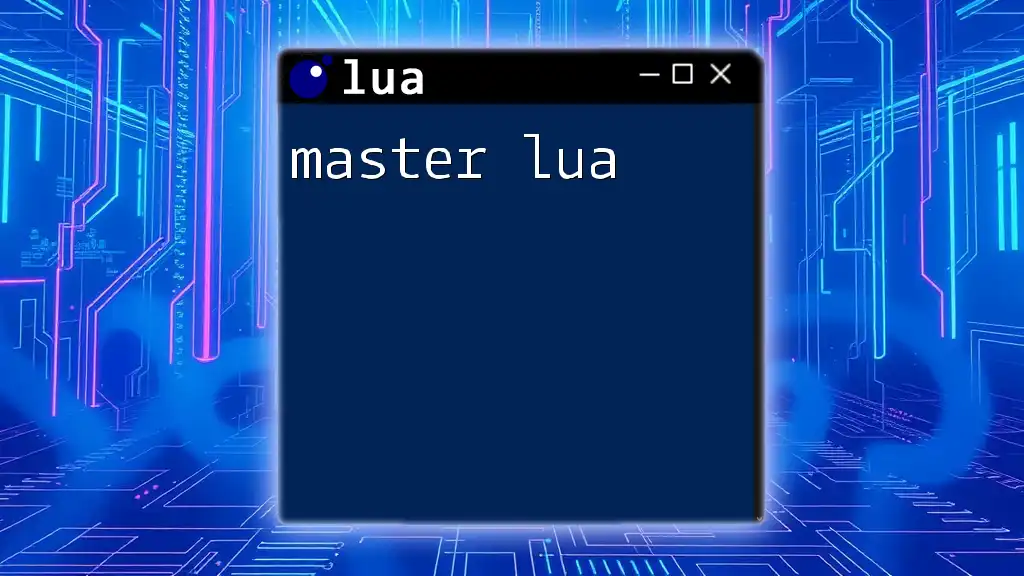
Practical Applications of Lua
Game Development with Lua
Lua's lightweight design and flexibility make it a favorite for many game developers. Game engines, such as Love2D and Corona SDK, utilize Lua as their scripting language. Below is a basic example of a Lua script in a Love2D game:
function love.draw()
love.graphics.print("Welcome to Love2D!", 400, 300)
end
This code uses the Love2D framework to display text on the screen.
Scripting and Automation
Beyond game development, Lua is also widely employed for scripting in applications. Notably, it's used in software like Adobe products for automation tasks and in various game mods for custom scripting capabilities.
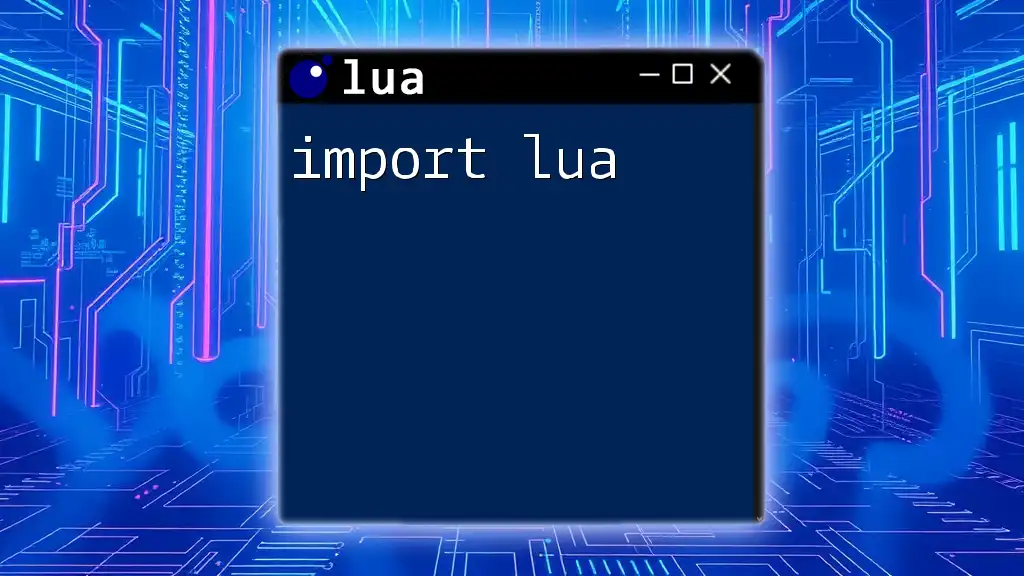
Conclusion
Learning Lua is a valuable investment, especially due to its simplicity, flexibility, and performance. Whether you’re interested in game development, automation tasks, or extending applications with scripting, mastering Lua will equip you with a powerful tool in your programming arsenal.
Next Steps
To enhance your Lua skills further, explore various resources available online, including books specifically about Lua, free tutorials, and community forums. Engaging with the Lua community will provide you support and diverse insights as you continue your journey to kickstart Lua effectively!
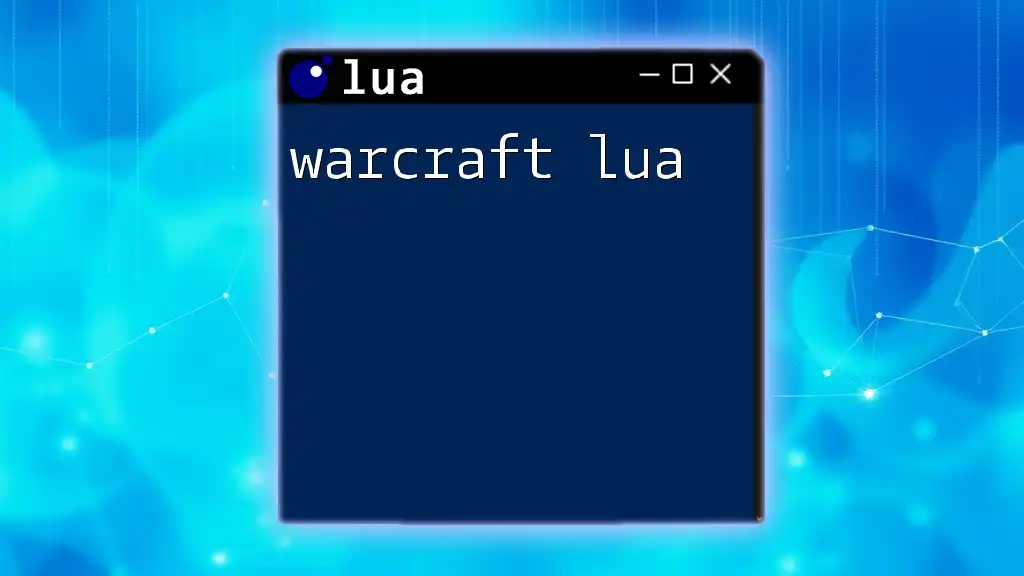
FAQ Section
Common Lua Questions
What makes Lua different from other programming languages? Lua is designed to be lightweight and easily embeddable, allowing it to work seamlessly within applications. Unlike many other languages, Lua focuses on simplicity, speed, and flexibility.
Can I use Lua for web development? While Lua isn't as commonly used for web development as languages like JavaScript or Python, it can still be a powerful choice for certain projects, especially those involving game engines or embedded systems.
Where can I find a Lua community? There are various online forums, Stack Overflow tags, and Lua-specific websites where you can connect with other Lua developers, share knowledge, and seek assistance.

